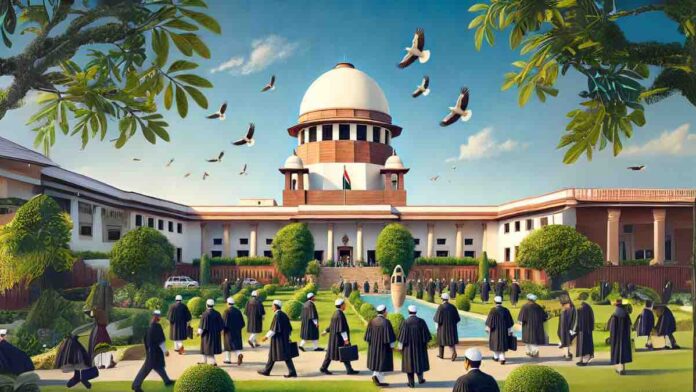The Supreme Court of India has ruled that the mere grant of prosecution sanction is insufficient to justify invoking the sealed cover procedure for government promotions. The judgment, delivered by a bench of Justice Sandeep Mehta and Justice R. Mahadevan, emphasized that the issuance of a charge memo or charge sheet is essential to trigger
To Read More Please Subscribe to VIP Membership for Unlimited Access to All the Articles, Download Available Copies of Judgments/Order, Acess to Central/State Bare Acts, Advertisement Free Content, Access to More than 4000 Legal Drafts( Readymade Editable Formats of Suits, Petitions, Writs, Legal Notices, Divorce Petitions, 138 Notices, Bail Applications etc.) in Hindi and English.




